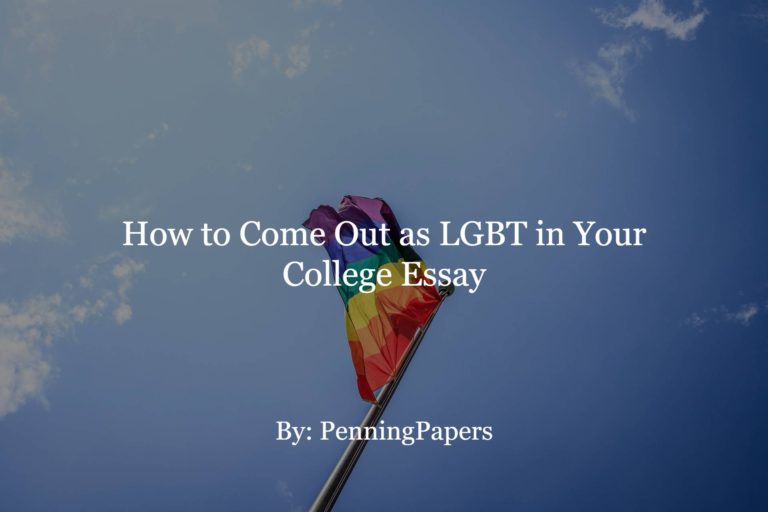Note: it takes a lot of courage and bravery to write your college essay about being gay, lesbian, bi, or trans (LGBT). Any form of coming out or personal experience about sexuality in your college essay is not easy to write. And, there are a lot of misconceptions regarding the topic. Thus, we’ve taken good care to be understanding of this topic and tread it with care.
Okay, we’re going to start this article guns blazing here.
First of all. Yes, you can certainly write your college essay about gender, coming out about your sexuality, and all other LGBT topics.
Yes. It CAN be much harder to write about these topics compared to other more “safe” topics.
Yes. It is often MUCH BETTER to write about “risky” topics such as anything regarding LGBT content (so long as you approach it correctly).
And, last but not least…
Yes. We HIGHLY RECOMMEND you work with at least one private college admissions consultant or advisor who is well-versed in LGBT content and experiences (or has worked with many in the past.)
With difficult topics, students seldom have the time or mental stamina to articulate complex experiences into the best college essays possible. It’s just rarely feasible with school, extracurriculars, and AP tests.
So, if there’s one thing you could get out of this article, it’s this.
“Risky” topics like LGBT experiences often have the BEST potential. So, we highly recommend speaking with a college admissions consultant ASAP for the right guidance.
In this article, we’re going to discuss how to come out as LGBT in your college essay, how to write about sexuality in general in college apps, and an example of a college essay about being gay that worked.
Table of Contents
- How to Come Out as LGBT in Your College Essay.
- Example College Essay About Being Gay That Worked.
- Common Misconceptions
Professional College Application Help.
Contact us. We'll get to you within 24 hours.
How to Come Out as LGBT in Your College Essay.

1. 2 Brains is Better Than One.

Let’s be frank.
The college admissions essay writing process is brutal. And, when you’re writing about difficult topics that can be filled with contention and misunderstanding, you’ll have to put in more work than most other students.
It’s like the Red Queen’s dictum: you have to do everything and more just to stay in the same space.
But, as we mentioned previously, it’s often difficult topics that many consider “risky” that make for the best essay topics.
So, it’s worth it!
What we recommend is having a college admissions consultant or advisor work with you throughout the writing process. If you’re writing your college essay about coming out as LGBT, you’re going to need the expert guidance and experience a professional has in crafting the perfect narrative.
Preferably, you’d want an empathetic consultant who has experience working with LGBT students in the past.
This is not always possible. In fact, much of the college admissions community can get quite flustered, and even many of the tutors, prep instructors, and advisors in the industry can be quite opinionated about what you’re allowed to write about and what you’re not.
We often recommend students writing about difficult topics look for these 5 attributes in their advisors.
- Is willing to pay attention to what you’re saying.
- Is slow. That is, they take their time.
- Is flexible and capable of bending rules to help you create an unconventional and competitive college essay.
- Has experience working with other LGBT students in the past.
- Does NOT use fear to motivate you to buy services.
The last idea is a very, very important aspect.
It is very common for college admissions consultants and consulting firms to use fear as a marketing tactic. In fact, they will scare students into thinking their GPAs, SATs/ACTs, essay topics, extracurriculars, etc are not good enough. And, they will push students into purchasing services to make up for this.
This cannot be stated enough. If your college consultant or advisor is trying to scare you into buying more services, DON’T work with them. They just want your money.
Other than that, if your consultant has all 5 of the above elements, they are most probably good enough to work with!
2. Take Your Time Articulating Your Feelings and Emotions.

If you’re planning on coming out as LGBT in your college essay, or plan to write about LGBT topics, you need to take your time articulating your feelings.
Sure, you may know yourself better than anyone else. That’s for sure.
But, even you may not know EVERYTHING there is to know about you. Chances are, if you’ve had a difficult or complex experience with being LGBT, as most students have had, there are deeper unconscious feelings that you have yet to articulate and conceptualize into sophisticated understanding.
So, let’s say you feel upset about the experience of coming out.
Sure, you may know what your own feelings are like; but, it’s hard to express that feeling to other people who may not understand your thoughts from your perspective.
What even is the experience of coming out? How can you communicate that to others? Were you feeling JUST angry? Or, were you feeling like an imposter in your own home and therefore always in a constant state of stress that never seems to go away? Were you feeling dreadful in that you were afraid of being “found out?” Did it make you want to control the outcomes of how other people see you, and thereby unconsciously train your personality to be more controlling of others as a result?
These are all very complex and sophisticated ideas that most students have a hard time putting into words.
In short: students writing their college essays about LGBT ideas struggle to articulate in 2 weeks what takes 18 years of oppression, complexity, and trauma to understand.
That’s why students who are writing their college essays about LGBT topics should start their essays early EVEN IF they are working with a consultant who is editing and brainstorming alongside them.
Got it? Great!
On to the next point!
3. It’s the Small Details That Often Hide a Lot of Meaning.
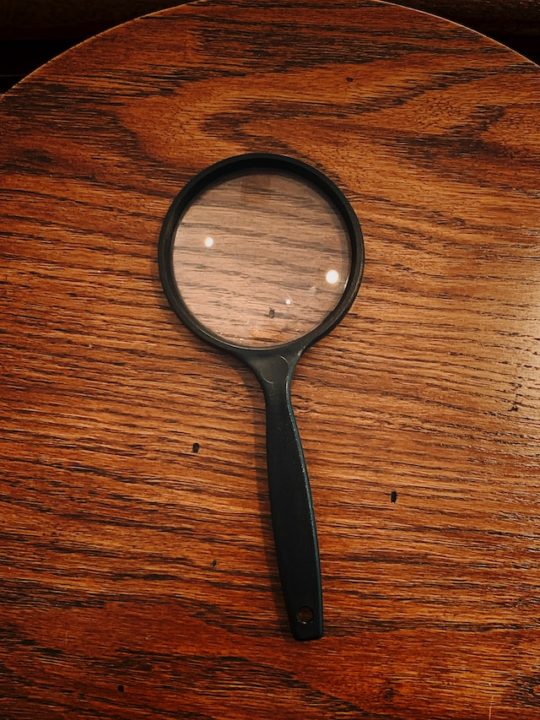
This is a cool trick.
If you’re trying to analyze and deconstruct the complex ideas behind your experiences as an LGBT student, you may find A LOT of value in the smaller details.
It’s a general literary analysis dictum: the small, inconspicuous details often hide great meaning.
It’s where we get the whole “Why were the curtains blue” joke. The point is not that the curtains are blue in some silly way; rather, it’s about how those small details carry with them major symbolisms, ironies, and other literary significances full of meaning.
Let’s take an example.
Let’s say you want to discuss just how difficult it was for you to come out of the closet in your college essay.
For neurotypical students, they may imagine the “closet” analogy as just that: an analogy for someone “coming out” as gay just as easily as someone just opens a door. Within this analogy is binary thinking that coming out is as easy as someone just “turning the doorknob.” But, in your experience, you may find this closet analogy ridiculous.
In fact, the process of coming out comes in the form of dropping subtle hints for years and years to those around you, careful not to make the hints neither too subtle nor severe. So, you’d paint your nails or dress more against your biological sex from common gender norms; but, this is nonetheless still very different from the closet analogy.
Therefore, your college essay could even focus on the very difficulty of the “coming out of the closet” analogy itself. This is a fantastic way for admissions officers to see exactly what your experience is like without having to be too broad.
You can zero in on a minor detail as small as a common analogy and derive from it a lot of meaning.
4. The Essay is About You and Your Growth Over Time. It’s NOT for Garnering Sympathy.

This is a common problem a lot of our students here at PenningPapers struggle with.
Many of our students fall under two camps:
- They think the college essay about LGBT topics is a moment to garner sympathy from admissions officers.
- They think the college essay is not an appropriate time to come out as LGBT.
Both of these perspectives are incorrect. But, since we’ve covered the second already, we’re just going to discuss the first.
The college essay is a moment for you to open up to the admissions officers about what makes you special, your unique qualities, and any personal experiences that demonstrate qualities about you that your transcript may otherwise not show.
In other words: it’s the best chance for you to show your struggles and growth over time.
Upon writing your college essay on being LGBT, you’ll more often than not have a lot of adversities and struggles to choose from as topics. Don’t use this as a time to make a sob story. The focus isn’t for admissions officers to feel sorry for you and give you acceptance out of pity.
Instead, your job is to show them what your experience was like in your shoes; then, demonstrate how you grew from your adversities.
Here’s a hint: try to think about how your adversities unconsciously lead to growth or strength. Most students write about how their struggles have actually made them more mentally resilient and verbally sharp.
For instance: let’s say that you’ve been verbally abused for coming out as a lesbian in your school. During such verbal abuse, you could have endured much mental strain and struggle over time. But, you may have also pondered and therefore created many comebacks, techniques, and linguistic tricks that can get you out of sticky situations.
As a result, your ability to verbally articulate yourself in a manner that protects yourself and others is a skill you plan to carry on for the rest of your life. And, it can help you protect those who are disadvantaged and prone to such verbal abuse wheresoever you plan to attend.
Example College Essay About Being Gay That Worked.
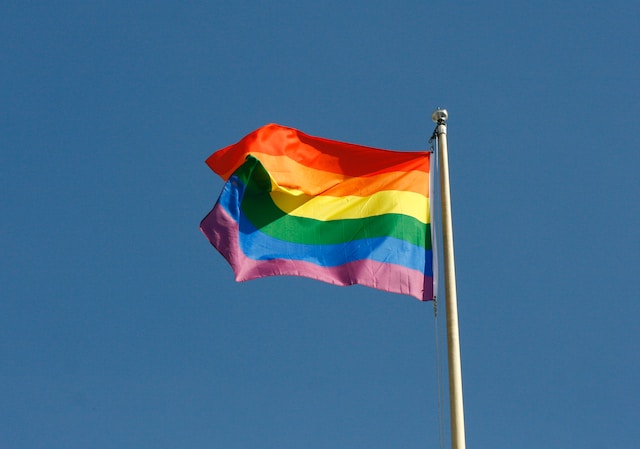
Please do not copy and paste this into any of your college applications. This example of a college essay about being gay is only a sample. It’s meant for students to use as inspiration for ideas on how to write their own college essays on LGBT topics.
In addition, most universities can and will check your submitted essays for plagiarism.
“The point of an arrow before the string’s release.
The dog’s bark before a bite.
The buzz before a sting.
There are many names for the feeling of despair before impending doom. The beating of the heart or the sinking feeling or the thought that something —a terrible thing— is behind you. They’re all valid, all true. They’re all terrifying.
And, they’re exactly what coming out as lesbian is like.
During my Sophomore year, I had a sudden outburst of openness. I’ve always felt “different” from fellow peers in that I never quite felt the same butterflies in my stomach that they did upon seeing other boys. I opened up about this difference in attraction to my brother, who, unfortunately, slipped this information to his friends and acquaintances, and their friends and acquaintances, and so on and so forth.
I hold no ill will against my brother. After all, he most probably didn’t know the gravity of the secrets I was bestowing unto him. What is done is done.
Yet, the struggle of having one’s secret revealed and released unto the world is certainly not a pleasant one. In fact, I believe a lot of my peers, friends, teachers and family have quite the misconception about what the process is like.
It’s the bark before a bite, the point of an arrow before release. It’s the feeling that something bad is going to happen when nothing quite has yet.
Well, okay; that’s not true. Something bad has happened. I was constantly harassed by classmates who had discovered this secret and pushed against my will. But, it happens intermittently.
Unlike common misconception, the struggles of coming out don’t happen as one event. It’s more like multiple unfortunate events that prick and pry at your weaknesses at every turn. Death by a million cuts. Death by attrition.
But, there are two things I’ve learned about this oppression.
- Just because I open up about my honest self does not mean the world will accept me with open arms. People can be cruel; and, unless I’m willing to accept that truth, I’ll be disappointed by unrealistic expectations.
- No matter how mired in oppression and bigotry my community and environment can be, I am actually more resilient than I once thought I was.
Sure. I was a bit of a silly little girl. I had faith in others I shouldn’t have had. I discovered a malevolence in peers and classmates I didn’t quite know was possible.
But, when the bullying came, when the bigotry unfolded, and when the barking stopped and the biting started, I realized I was… still alive.
I didn’t die. And, I had a courage inside of me I never quite knew I was capable of until I fought back against those who tried to denigrate me for my sexuality for the first time.
I was strong this whole time. And, at “x” University, I will continue to be strong for myself and hopefully for others who’ve yet to discover their inner strength.”
Example College Essay About Being Gay That Worked –PenningPapers
Common Misconceptions

1. Anything Left-Leaning is an Auto-Admit.
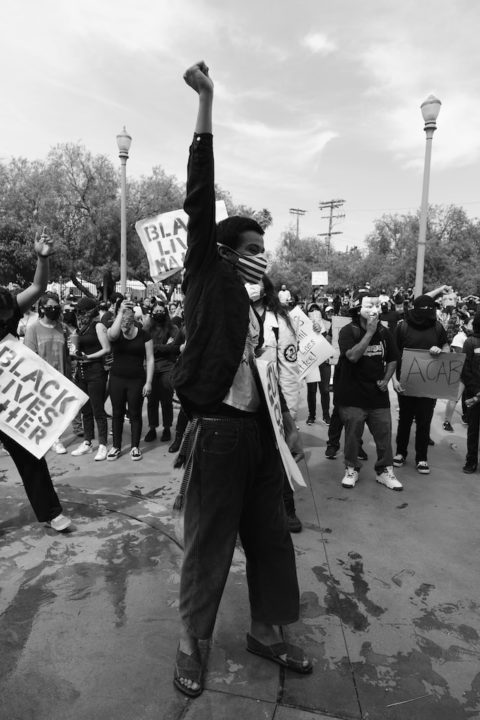
We actually get this comment very often from families in the SoCal region.
“If colleges and universities prefer to lean left politically, wouldn’t it be smarter for my child to say that they’re LGBT or any other left-leaning and liberal-friendly identity for the college admissions advantages? And, if so, is this an auto-admit?”
And, well, no.
Most universities explicitly have a non-discrimination policy that they must follow for their application process.
For instance, see Lawrence University’s policy.
“Lawrence University is committed to providing equal access and opportunity to qualified individuals of all backgrounds. In accordance with this policy and with applicable federal and state law, the University prohibits discrimination in admissions, its programs and activities, employment and advancement on the basis of race, color, creed, religion, national origin, ancestry, age, sex, sexual orientation, gender identity, gender expression, marital status, pregnancy, genetic information, disability, military service, protected veteran status, political affiliation, arrest record or conviction record.”
Lawrence University Discrimination Policy
Now, this can get a little bit complicated.
Some universities are in fact obligated to some degree to pursue classes that have an equal distribution of genders. For instance, USC pursues a 50/50 gender ratio for its Viterbi School of Engineering. And, they’re quite proud of it!
Now, this can be infinitely more complicated given that some people do not and prefer not to subscribe to binary gender roles.
But, roughly speaking, some schools are going to put more emphasis on certain elements of gender and race equality in the application process. And, being LGBT MAY help in some regard depending on the university’s need.
However, it’s difficult for students to lie about their experience being LGBT if they’ve never been a part of the identity. This is especially true for the application essay section, which is where we get to the next point.
2. You Should Lie About Being LGBT for a Higher Acceptance Rate.
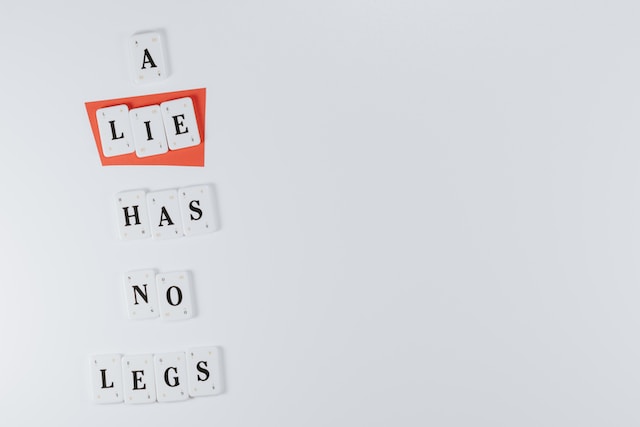
Please don’t do this.
There’s a moral reason you shouldn’t lie about being LGBT in your college essays which is obvious: it’s unethical to take space away from otherwise legitimately LGBT people.
But, there’s also a practical reason not to lie.
Let’s start with some terminology.
There are two classes the college admissions factors fall into: qualitative and quantitative.
Quantitative is, well, quantitative in that it involves numbers and metrics. So, your GPA and SAT/ACT score fall under this category.
Qualitative traits judge things outside of numbers. So, your personality, temperament, and fit in campus culture fall under this. Being LGBT falls under this too.
But, here’s the catch: colleges CAN’T judge your qualitative traits on just check boxes. The college essay is one of the only parts of the application process where students can have their qualitative traits properly assessed.
If you want your LGBT traits to truly be worth anything significant in the application process, you’ll most probably want to write an LGBT college essay.
Okay, let’s say you wanted to write your college essay about being gay. But, you’re lying and not actually gay. You’re just trying to do it for the brownie points.
Can you get away with it?
Nope!
The likelihood you, as an outsider, can write about an oppressed minority group’s experiences in a way that is accurate, believable, and strong enough to convince admissions officers is slim to none.
In short, you shouldn’t lie on a college essay because it’s nearly impossible to articulate something you don’t know or haven’t lived through.
We’ve even seen people who are genuinely LGBT struggle with writing their college essays about being gay. And, that’s fair! It’s a hard subject full of nuance and difficulty. So, if you’re one of those who struggle to articulate their experience of being LGBT, consider speaking with a college admissions expert who can hold your hand throughout the process.
3. All College Essay Topics Regarding LGBT and Coming Out Experiences are Harder Than Other Topics.

There’s actually a bit of truth to this one.
Any college essay about being gay, lesbian, bi, trans, etc is often going to be more difficult to write than other topics. This is because the background, history, and experiences regarding LGBT topics are often nuanced, and complicated, and require a delicate hand in articulating.
Of course, this is not always the case. But, it’s safe to say writing a college essay about being gay despite living in a homophobic household is likely going to carry more nuances and challenges than a generic topic.
Now, that brings up another question…
Is it worth it to write a college essay about being LGBT? Or, is it better to write about a more safe topic to avoid the possibility of offending admissions officers?
There are a lot of factors that can come into play here.
For one, this depends on whether you’re going to be working with a professional college admissions advisor. And, even then, what their personal opinion on the matter is and how averse they are to risk.
Then, you’ve got time.
How much time do you have to write a college essay about being gay? Even if you have a super great experience to write about that would “wow” the admissions office, do you even have the time to conjure such essays before the deadline?
Are you going to be shotgunning to multiple schools?
Does your topic inexorably cover other details that you would prefer to keep private?
These are all just a few points to consider when you’re writing an LGBT college essay.
Nonetheless, there still is a general rule of thumb when it comes to whether writing about LGBT topics is really “worth it” or not in the grand scheme of things. We’ll get to this in the next section below.
4. My Counselors/Advisors/Teachers/Peers Recommended I Take a “Safe” Topic.

Long story short: yes. It’s worth it to write your college essay about being gay, LGBT, or other “risky” topics.
It’s quite common for college counselors, advisors, school teachers, and peers in class to recommend students take on a safe topic. In fact, even online communities like Reddit’s A2C sub and the popular College Confidential often have commenters and forum regulars who recommend students take on the safe route.
Although this is sound advice, we’ve found that “risky topics” usually work best in the long run for most students.
For starters, most students have enough time to brainstorm, draft, and revise a college essay about being gay far earlier than the deadline. So, this gives them enough time to conjure new ideas to experiment or revise their original content to make it stronger than the previous versions. This also gives them enough time to cover up some of their red flags or mishaps.
Other than the gratuitous amount of time students have before their admissions deadlines, the advantage of a “risky topic” in a college essay is just how easy it is to have a unique topic that stands out from the rest.
We find that students who write their college essays about being gay or any other LGBT topics have an easier time finding a large pool of topics to address. With such a nuanced topic complete with the utility to pivot, it’s much easier to show parts of your personality and character that other topics often can’t cover as well.
So, although writing your college essay about being gay or LGBT may be harder than talking about more generic and safe topics, the yields are ultimately much better in the long run.
If you have any other questions about LGBT essays or are looking to receive help on writing your college essay about being gay, don’t hesitate to speak with us. Schedule a free consultation with one of our college essay experts, and we will get back to you within 24 hours. We’ll help you craft a solid essay that expertly weaves in the right words that will maximize your chances of acceptance into some of the most prestigious universities in the nation including all those in the UC and IVY system.
